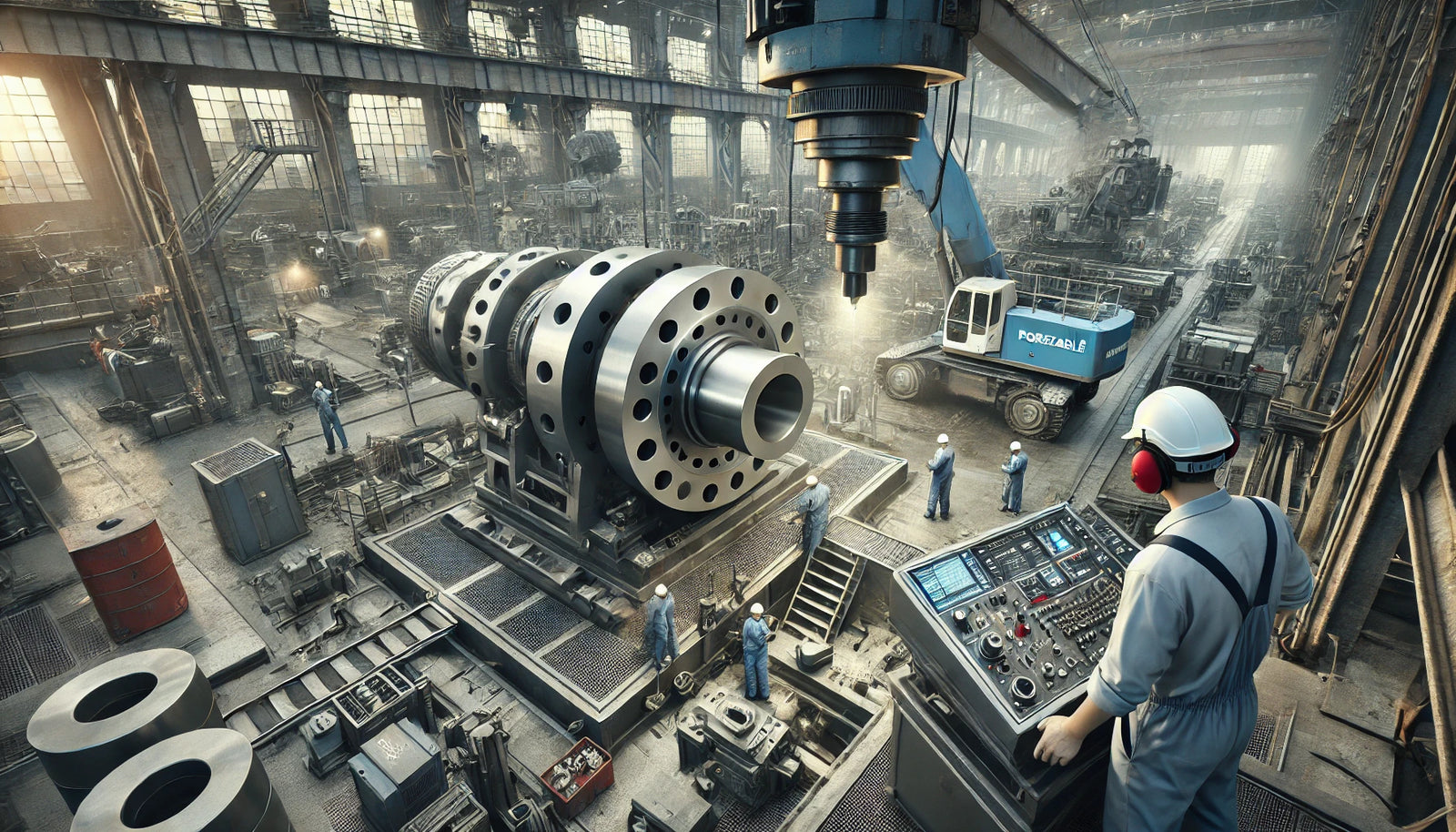Top Applications for Heavy-Duty Lathes in Industry
In the realm of industrial manufacturing, heavy-duty lathes play a pivotal role in shaping the backbone of numerous sectors. These robust machines are designed to handle large and heavy workpieces, enabling the production of critical components that demand precision and durability. In this blog post, we'll explore the top industries and tasks where heavy-duty lathes are not just beneficial but essential.
1. Oil and Gas Industry
Manufacturing of Drilling Equipment and Components
The oil and gas industry relies heavily on heavy-duty lathes for the production of large-diameter pipes, flanges, and drilling equipment. Components such as drill collars, drill pipes, and casing pipes require precise machining to withstand the extreme pressures and stresses encountered during drilling operations.
- Large-Diameter Pipes and Flanges: Heavy-duty lathes are used to machine threads and joints on large pipes and flanges, ensuring a tight and secure fit in pipelines.
- Drilling Tools: Manufacturing drill bits and other downhole tools demands high precision, which is achieved through the use of heavy-duty lathes capable of handling the substantial size and weight of these components.
2. Aerospace Industry
Machining of Critical Aerospace Components
In aerospace manufacturing, the need for precision and reliability is paramount. Heavy-duty lathes are instrumental in producing large components that are integral to aircraft performance.
- Engine Components: Turbine shafts and engine casings require exact specifications to function efficiently. Heavy-duty lathes machine these parts to the necessary tolerances.
- Landing Gear: The robust structure of landing gear components demands machining equipment that can handle large sizes and weights while maintaining precision.
3. Automotive Industry
Production of Engine and Transmission Parts
While the automotive industry often deals with mass production, there is still a significant need for heavy-duty lathes, especially for larger vehicles and specialized components.
- Crankshafts and Camshafts: These critical engine components require precise machining to ensure smooth engine operation.
- Axles and Drive Shafts: Heavy-duty lathes machine these parts to exact dimensions, which is essential for vehicle safety and performance.
4. Shipbuilding Industry
Manufacturing of Marine Components
The shipbuilding industry relies on heavy-duty lathes to produce large-scale components necessary for vessel operation and integrity.
- Propeller Shafts: These shafts must be perfectly balanced and machined to precise specifications to ensure efficient propulsion.
- Rudder Stocks: Machining rudder stocks requires equipment that can handle substantial lengths and diameters, making heavy-duty lathes indispensable.
5. Power Generation Industry
Production of Turbine and Generator Components
Power plants, whether nuclear, fossil fuel, or renewable, utilize heavy-duty lathes for the manufacturing of components that convert energy into electricity.
- Turbine Rotors and Shafts: These massive components require precision machining to function correctly and efficiently in power generation.
- Generator Rotors: Heavy-duty lathes machine these critical parts, ensuring they meet the stringent requirements for balance and structural integrity.
6. Railway Industry
Machining of Train Wheels and Axles
The railway industry depends on heavy-duty lathes for both the production and maintenance of essential train components.
- Train Wheels: Heavy-duty lathes are used to machine new wheels and re-profile worn wheels to extend their service life.
- Axles: Precision machining of axles ensures the safe operation of trains, handling the stresses of high-speed travel and heavy loads.
7. Heavy Equipment Manufacturing
Construction and Agricultural Machinery Components
Manufacturers of heavy machinery for construction and agriculture rely on heavy-duty lathes to produce durable and reliable components.
- Hydraulic Cylinders: Machining large cylinders requires the capacity and precision of heavy-duty lathes.
- Booms and Arms: Components like excavator booms and loader arms are machined to exact specifications to ensure strength and durability.
8. Steel and Metal Processing Industry
Production of Large Metal Components
In industries where metal processing is central, heavy-duty lathes are essential for shaping and finishing large metal parts.
- Rolling Mill Rolls: These large rolls used in steel mills are machined on heavy-duty lathes to achieve the required surface finish and dimensional accuracy.
- Large Gear Blanks: Heavy-duty lathes machine the initial blanks that will become large gears used in various industrial applications.
9. Renewable Energy Sector
Wind Turbine Components
As the renewable energy sector grows, so does the demand for heavy-duty lathes in manufacturing wind turbine components.
- Wind Turbine Shafts: These long and heavy shafts require precise machining to ensure the turbine operates efficiently.
- Hubs and Nacelle Components: Machining these large parts demands the capacity and precision provided by heavy-duty lathes.
10. Defense and Military Applications
Production of Military Equipment
The defense industry utilizes heavy-duty lathes to manufacture components for military vehicles, ships, and aircraft.
- Artillery and Gun Barrels: Precision machining ensures these components meet strict performance and safety standards.
- Armored Vehicle Parts: Components like turret rings and drive shafts are machined using heavy-duty lathes to handle the demands of military operations.
Conclusion
Heavy-duty lathes are the unsung heroes in many industries, enabling the production of large and complex components that are critical to the operation of machinery and equipment. Their ability to handle substantial sizes and weights while maintaining high precision makes them indispensable in sectors ranging from oil and gas to renewable energy.
By understanding the applications of heavy-duty lathes across these industries, manufacturers can appreciate the importance of investing in quality machinery and skilled operators. These investments ensure the production of reliable components that keep the world's industries moving forward.
Whether you're involved in manufacturing, engineering, or industrial operations, recognizing the role of heavy-duty lathes can help you make informed decisions about equipment and processes. These machines are not just tools; they are essential assets that contribute to the efficiency, safety, and advancement of modern industry.





